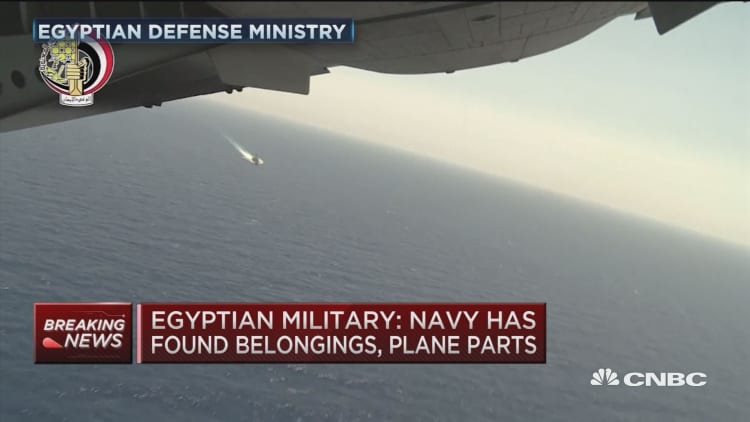
When an EgyptAir disappeared over the Mediterranean on Thursday, it left 66 individuals missing, upended the lives of countless families and mobilized a desperate, international search. And for airports around the world, it ratcheted up tension at a time when they were already under intense criticism about their security practices.
As officials search for wreckage north of Egypt, key airports like Los Angeles International have reportedly boosted counterterrorism efforts. Investigators have yet to establish a conclusive cause of Flight MS804's crash, but other airports are likely to respond by increasing security scrutiny — which could prove challenging at a time that they're also trying to make screening more efficient, experts said.
"It's a natural response to increase security in the short term. It's about moving fast enough to get through quickly but not fast enough that they miss things," said Jeffrey Price, an aviation security expert and professor at Metropolitan State University of Denver.
As concerns mount, local and state officials met with TSA representatives at Chicago O'Hare International Airport on Friday to discuss the lines.
"I think this summer is going to continue to be a challenge. We have passenger growth, I haven't grown back as much staff as I need, but I think we are doing everything we can to mitigate that at the largest airports," said Peter Neffenger, the TSA administrator, in Chicago on Friday.
The EgyptAir crash adds another variable to an already messy aviation security equation. Numerous passengers have complained about sometimes hours-long security lines recently, as the U.S. Transportation Security Administration deals with higher passenger traffic and tries to boost staffing.
The agency started tightening security procedures last year after federal auditors slipped fake bombs and weapons past screeners, finding that TSA agents failed 95 percent of breach tests.
The TSA declined to comment to CNBC on how the EgyptAir crash could affect wait times.
Both Price and Philip Baum, editor-in-chief of Aviation Security International, highlighted the risks of the long lines themselves. Security fears about extended wait times also increased after bombs exploded on the public side of screening areas in the Brussels Airport earlier this year.
"The process does take too long. One thing that we ought to be avoiding is having queues at checkpoints," said Baum, who also wrote "Violence in the Skies: A History of Aircraft Hijacking and Bombing."
Baum warned against rash policy changes once investigators get to the bottom of the EgyptAir crash. He pointed to a flight last year when a Germanwings co-pilot deliberately crashed a plane. His fellow pilot had left the cockpit and was unable to enter due to a door-locking protocol established after the Sept. 11, 2001 attacks.


